[GSE2022] When Rural Education Meets COVID-19 in the Digital Era: Forum on Smart Village and Transformation of Rural Education
date:2022-09-06 14:44author:adminsource:Smart Learning Instituteviews:
As a part of the 2022 Global Smart Education Conference, the thematic forum "Smart Village and Transformation of Rural Education" was jointly organized by UNESCO International Research and Training Centre for Rural Education (UNESCO INRULED), Southeast Asian Ministers of Education Organization (SEAMEO) Secretariat, Yunus Center at Asian Institute of Technology (AIT, Thailand), the International Centre for Higher Education Innovation under the auspices of UNESCO (UNESCO-ICHEI), and the Smart Learning institute of Beijing Normal University (SLIBNU), with 20 speakers and more than 50,000 participants onsite and online globally.
The main objective of this forum was to create a platform to review and present advanced methodologies, current progress and challenges, and future opportunities in smart villages and rural education transformation for sustainable development.
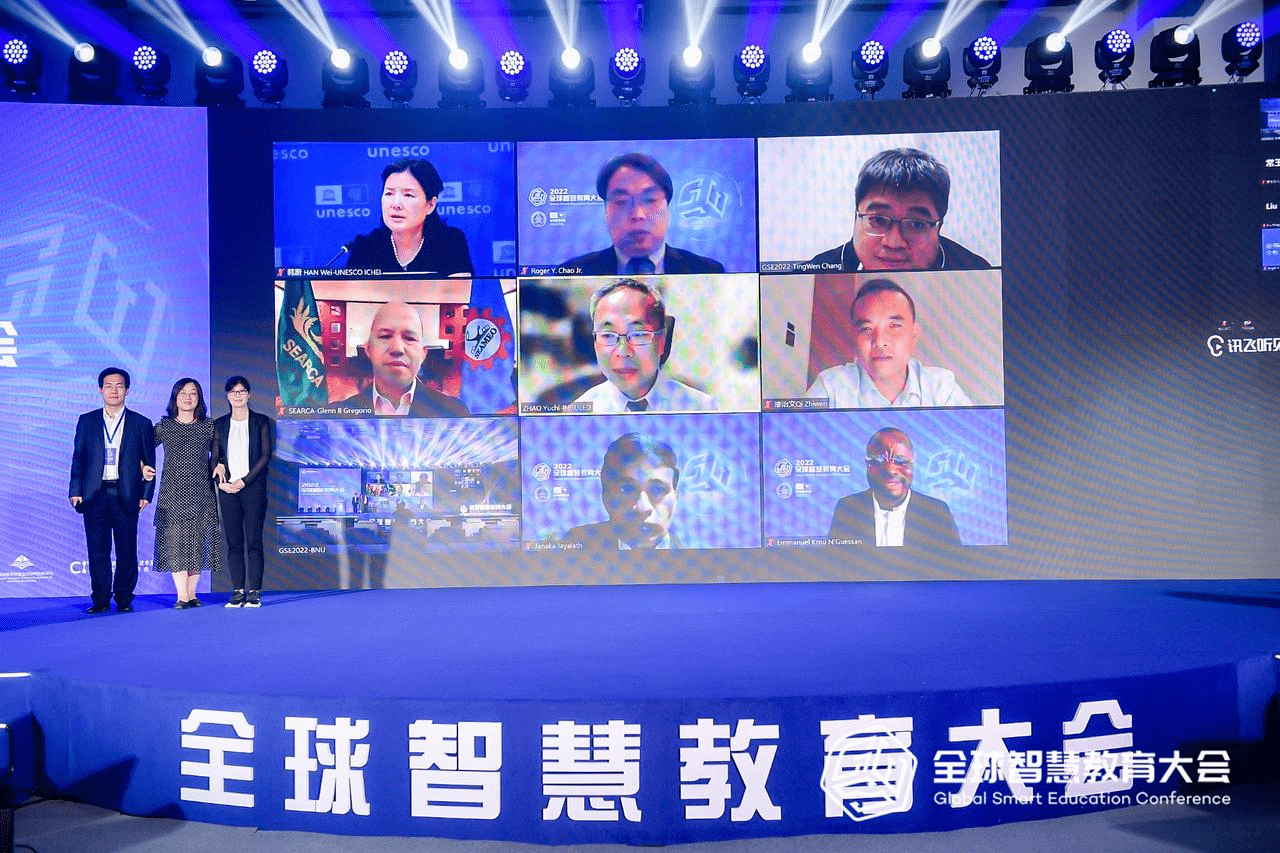
The forum included three opening remarks delivered by the co-organizer representatives, and 15 speakers allocated to three sessions: 6 keynote speeches, 1 outcome release, and 9 presentations of thematic research and country reports.
Wang Lei, Deputy Director of the Office of International Exchange and Cooperation, Beijing Normal University, delivered an opening address at the forum. Wang briefed a speech about the negative effects that COVID imposed on the global education system, highlighting that women and children were particularly vulnerable.
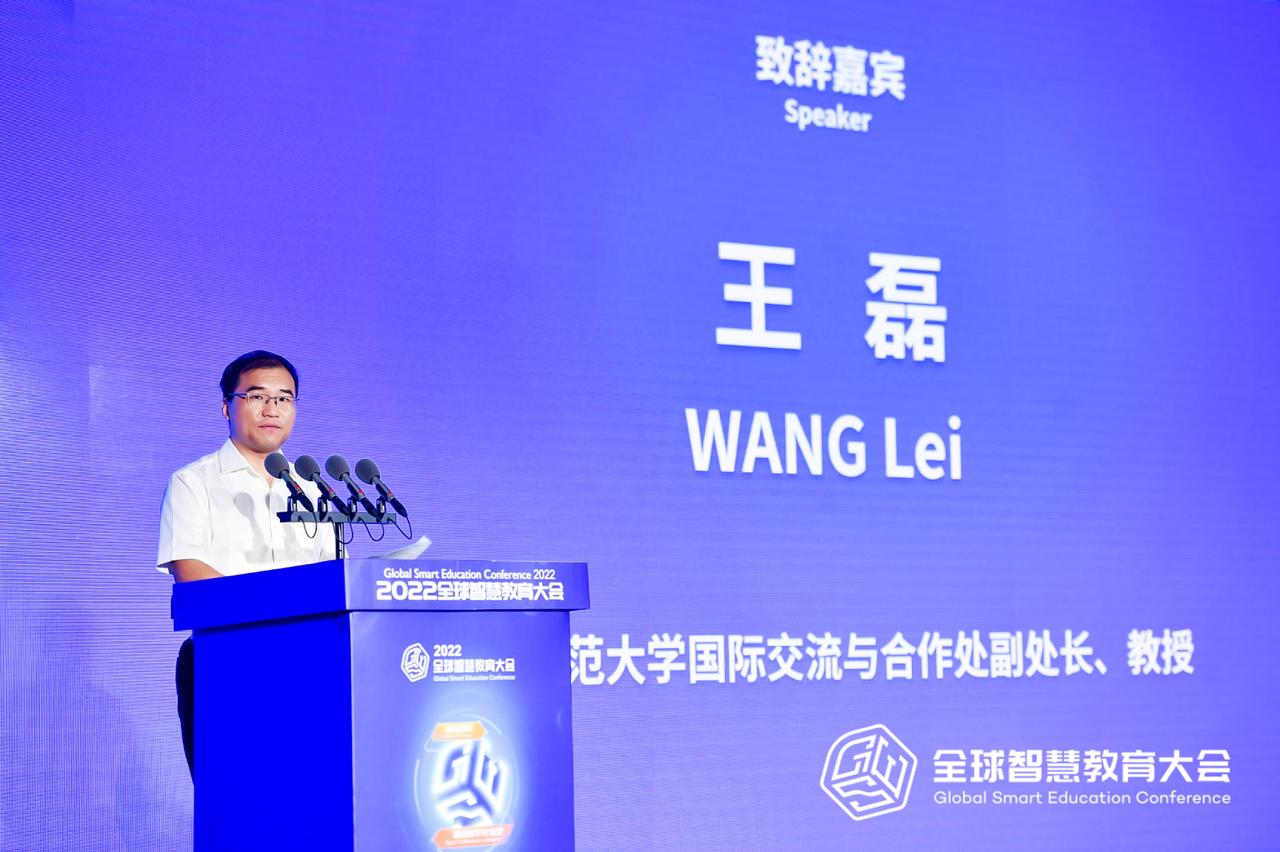
Wang Lei, Deputy Director of the Office of International Exchange and Cooperation, Beijing Normal University, China
"Against the challenges of the global education crisis and learning loss, smart education will become an important breakthrough. Smart education is the target form of digital transformation of education." Wang noted.
He also stressed his appreciation to all co-organizers and guests on behalf of Beijing Normal University, expressing the organization's wish to cope with the global education crisis and strive for the SDGs together with its global partners.
Ethel Agnes P Valenzuela, Director of SEAMEO Secretariat, expressed her thanks to the invitation from Beijing Normal University and introduced the motivation and missions of SEAMEO. She stressed the COVID-19 was also an education crisis. A series of strategies adopted by the organization, combining ICT and updating pedagogy, successfully helped the region downsize the aftermaths of lockdowns in terms of education. Finally, she urged that it was the time for achieving educational transformation.
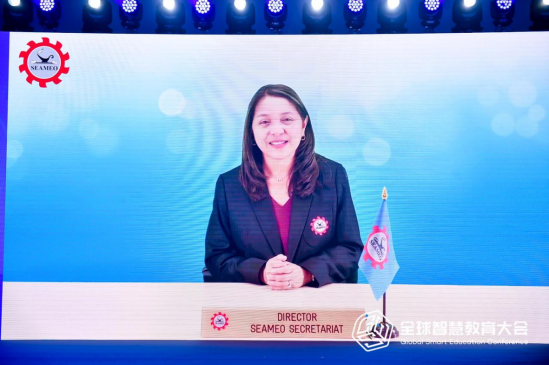
Dr. Ethel Agnes P Valenzuela, Director of SEAMEO Secretariat
Faiz Shah, Director of Yunus Center AIT, Thailand, stressed the significance of AI and ICT in education because they make education "less expensive" and “ubiquitous”. With some examples, he demonstrated the transformational role of education with the help of technology, who shared the same idea with Professor Yunus.
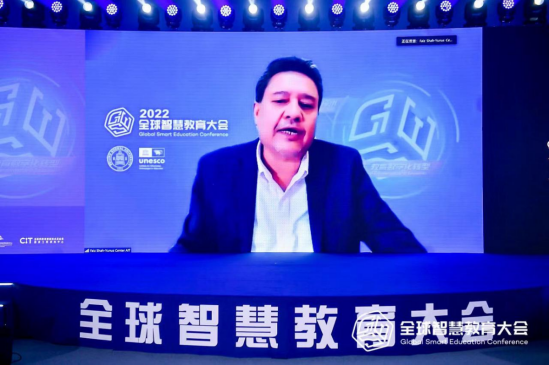
Faiz Shah, Director of Yunus Center AIT, Thailand
He introduced some work that AIT Yunus center has been doing to prompt digital inclusion and digital transformation. Through videos, he shared with the guests Professor Yunus's interpretation of three-zero world and three-zero club.
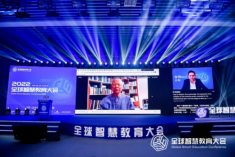
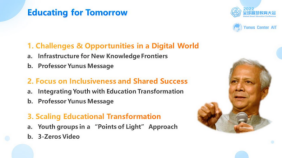
Muhammad Yunus, Founder of Grameen Bank of Bangladesh and the laureate of Nobel 2006
Muhammad Yunus, Founder of Grameen Bank of Bangladesh and the laureate of Nobel, highlighted the significance of the right education and the right thinking for building the future world.
Combined with his experience of founding Grameen Bank, he emphasized fostering creative thinking and ensuring the well-being of students, and proposed the wish of three-zero world — "zero emission, zero poverty and zero unemployment", and introduced three-zero club, aiming to build a platform for people to discuss about creating a three-zero world.
Following the opening ceremony session, keynote speeches were delivered by five speakers from China and various international organizations, namely ASEAN Secretariat, UNESCO-ICHEI, UNESCO UNEVOC, and SEAMEO-SEARCA.
Wang Jixin, Professor of Central China Normal University, introduced the findings of his team's experiment of augmented interactive teaching reform, which aimed to improve the teaching quality of rural schools.
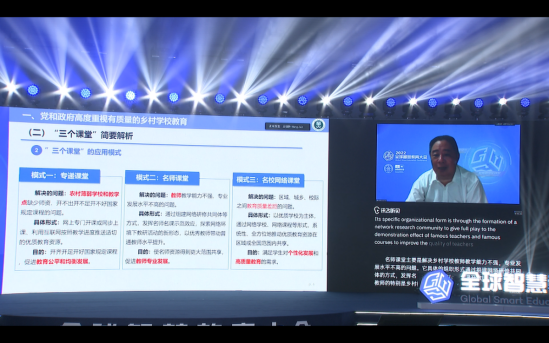
Wang Jixin, Professor of Central China Normal University, China
Roger Y. Chao Jr., Asst. Director/Head of Education, Youth and Sports at the ASEAN Secretariat, reviewed the history and a series of documents and initiatives issued by ASEAN on promoting a society of life-long learning.
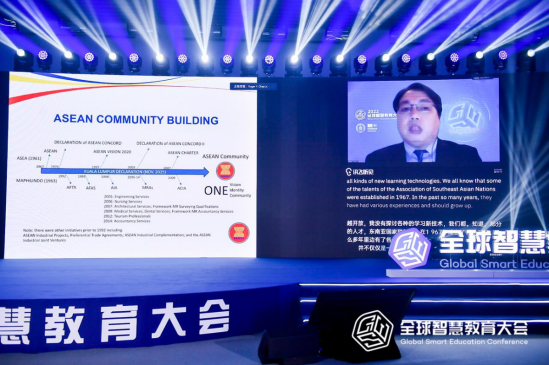
Roger Y. Chao Jr., Asst. Director/Head of Education, Youth and Sports at the ASEAN Secretariat
Han Wei, Executive Deputy Director of UNESCO-ICHEI, talked about the Practices and Experience of Building a Global Community of Higher Education Digital Transformation in three dimensions: 1) Theoretical research on education; 2) A platform of extensive consultation, joint contribution and shared benefits; 3) International and interdisciplinary collaboration.

Han Wei, Executive Deputy Director of UNESCO-ICHEI
Janaka Jayalath, Coordinator of UNESCO UNEVOC in South Asia, Deputy Director of Tertiary and Vocational Education Commission, Sri Lanka, introduced the project “Skill Passport” to the audience. As an innovative practice integrating technologies, the project aimed to improve the quality of tertiary and vocational education in Sri Lanka.
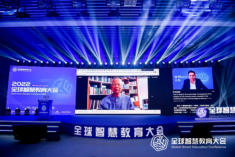
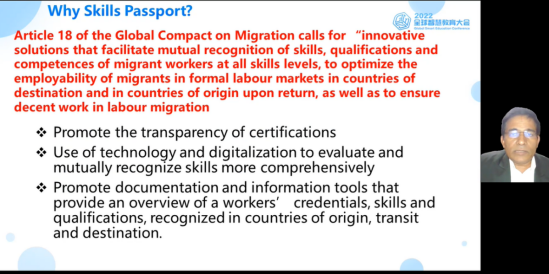
Janaka Jayalath, Coordinator of UNESCO UNEVOC in South Asia, Deputy Director of Tertiary and Vocational Education Commission, Sri Lanka
Glenn B. Gregorio, Director of the Southeast Asian Regional Center for Graduate Study and Research in Agriculture (SEAMEO-SEARCA) in the Philippines, gave a speech about the six key areas for R&D to accelerate the transformation of the agriculture sector and food security in a post-COVID period.
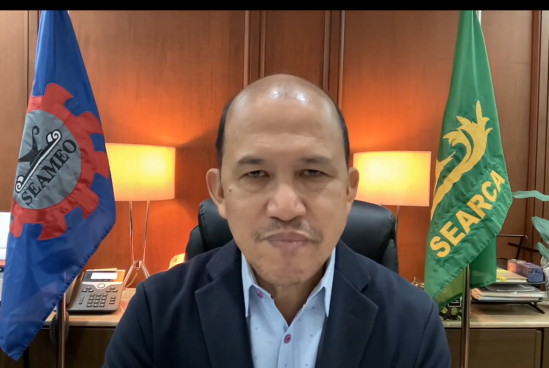
Glenn B. Gregorio, Director of SEAMEO-SEARCA, Philippines
After the keynote speech session, a research outcome were jointly released by Li Baoping, Deputy Dean of the Institute of Rural Education and Rural Development, Beijing Normal University, and Zeng Xiaodong, Executive Director of UNESCO INRULED.
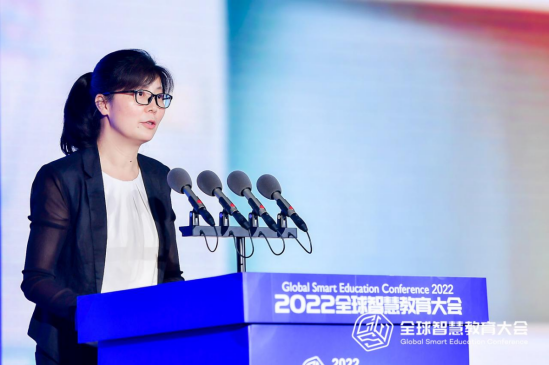
Li Baoping, Deputy Dean of the Institute of Rural Education and Rural Development, BNU, China
Themed Digital Education in K-12 Schools in China: A Comparative Case Study of Rural and Urban Areas, the study revealed the differences between rural and urban schools in terms of the use of digital methods and career support for teachers. Based on the findings, the paper proposed that a more precise investment model should be provided for rural schools to enable sustainable and quality improvement in rural education.
Pietro Borsano, Deputy Executive Director (Industrial and Global Alliances) of School of Integrated Innovation (SCII), Chulalongkorn University, Thailand, shared his insights about the development of the digital economy across the 10 Southeast Asia economies and how the pandemic accelerated the digital transformation of SMEs, with a notable growth of digitalization in non-metropolitan areas of Southeast Asia.
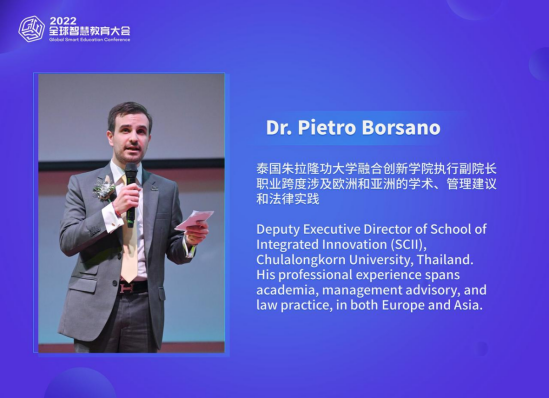
Pietro Borsano, Deputy Executive Director of SCII, Chulalongkorn University, Thailand
Qi Zhiwen, Dean of Department of Higher Vocational Education in Gansu Institute for Education Research (GIER), pointed out the analysis and suggestion of their team on the imbalanced development of rural schools, particularly, boarding schools and small-scale schools in rural areas.
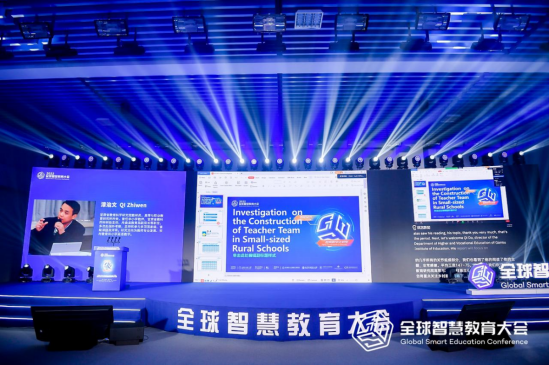
Mr. Qi Zhiwen, Dean of Department of Higher Vocational Education in GIER, China
Morshed M Ahmad, Professor and Head of Department of Development and Sustainability at Asian Institute of Technology (AIT) of Thailand, shared the comparison research conducted in three countries. He stressed that the government should issue long-term plans and framework to help recover from the pandemic.
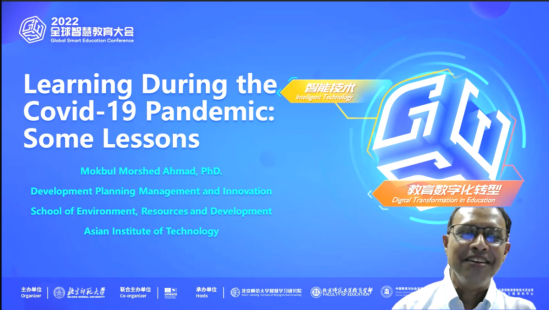
Morshed M Ahmad, Professor and Head of Department of Development and Sustainability at AIT, Thailand
Kiichi Oyasu, Director of Educational Cooperation in Asia-Pacific Cultural Centre for UNESCO (ACCU), introduced the challenges that Japanese rural areas faced in development, particularly in an aging society. He shared the solutions and cases of disaster prevention and building smart communities.
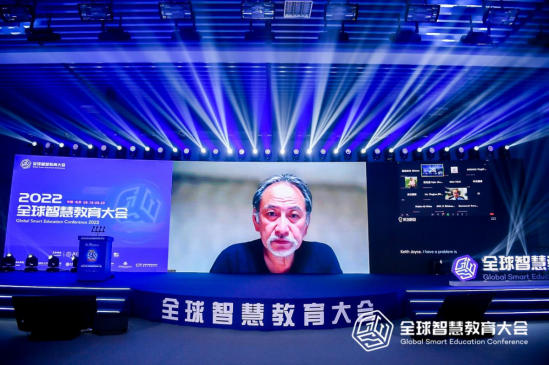
Kiichi Oyasu, Director of Educational Cooperation in ACCU, Japan
Nguyen The Manh, Rice Programme Manager of Rikolto in Vietnam and Rice Programme Director of Rikolto in Southeast Asia, introduced various ways that minority ethnics in Vietnam used to cope with climate changes.
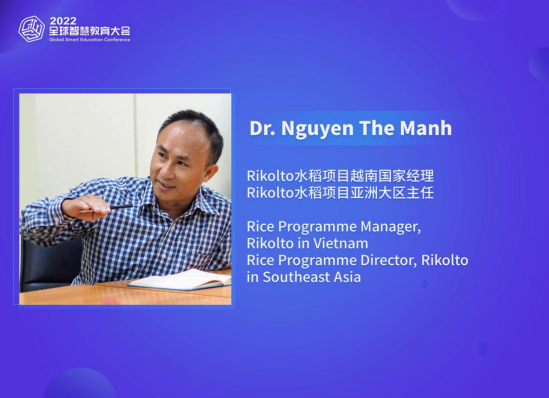
Nguyen The Manh, Rice Programme Manager of Rikolto in Vietnam and Rice Programme Director of Rikolto in Southeast Asia, Vietnam
Emmanuel Krou N'Guessan, President of the NGO GA-TIC, Côte d'Ivoire, and the winner of the 2021 UNESCO-Confucius Literacy Prize, shared his experience in decreasing illiteracy among women in his country and proposed his vision of prompting digital transformation in Africa with the help of ICT and International cooperation.
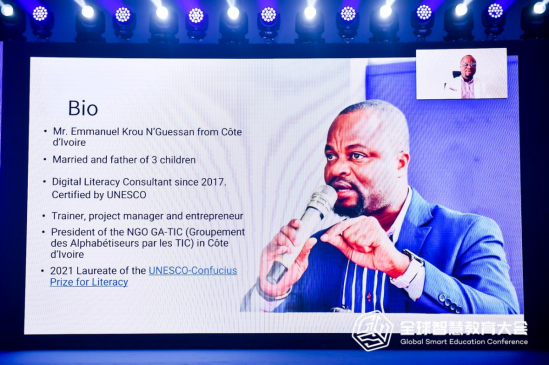
Emmanuel Krou N'Guessan, President of the NGO GA-TIC, and the winner of the 2021 UNESCO-Confucius Literacy Prize, Côte d'Ivoire
Shoukat Ali, Associate Professor of University of Agriculture Faisalabad in Pakistan, talked about various digital initiatives launched by the School Education Department of Punjab Pakistan. The study of his team contributed to improving and sustaining quality education through the recommendations.
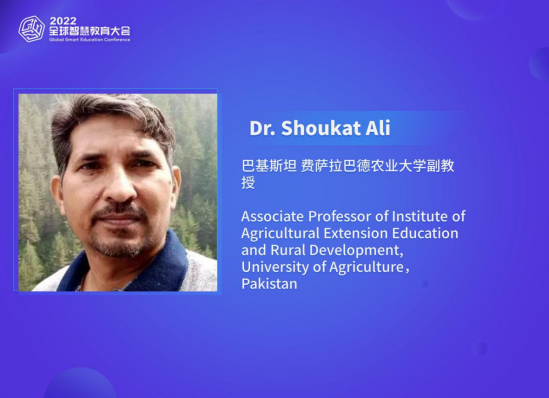
Shoukat Ali, Associate Professor of University of Agriculture Faisalabad, Pakistan
Asrul Sidiq, a lecturer at Syiah Kuala University and researcher at the International Centre for Aceh and Indian Ocean Studies (ICAIOS), discussed processes and outcomes of TORA — the reform of land making use of land titling to improve management and protection of natural resources.
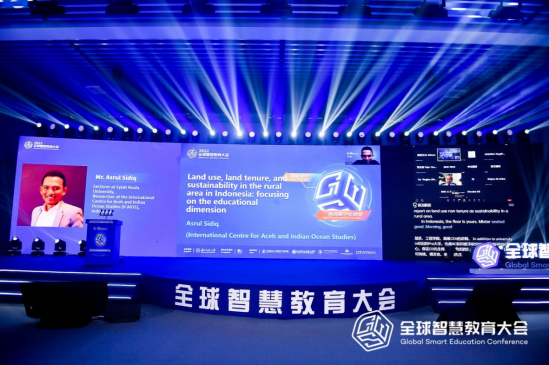
Asrul Sidiq, a lecturer at Syiah Kuala University and researcher at the International Centre for Aceh and Indian Ocean Studies (ICAIOS), Indonesia
Bounkham Phonedalom, Director of Permanent Secretary Office, Ministry of Foreign Affairs of the Lao PDR, gave a presentation about how the agricultural information through the use of ICT has impacted on vegetable growers/farmers in Vientiane province, Lao PDR.
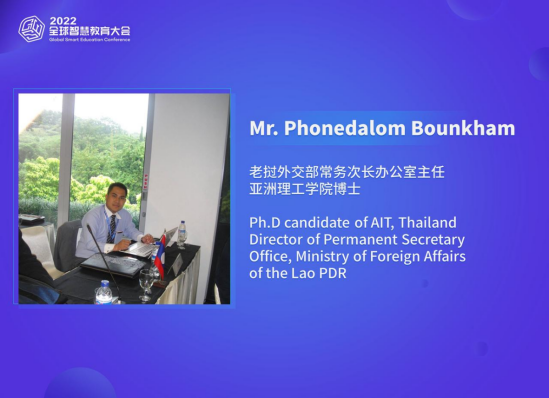
Bounkham Phonedalom, Director of Permanent Secretary Office, Ministry of Foreign Affairs of the Lao PDR, PhD Candidate of AIT, Thailand
The opening and keynote sessions were moderated by Zeng Xiaodong, Executive Director of UNESCO INRULED. Following the sessions, a thematic research and country reports session was conducted and moderated by Dr. Zhao Yuchi, Deputy Director of UNESCO INRULED.
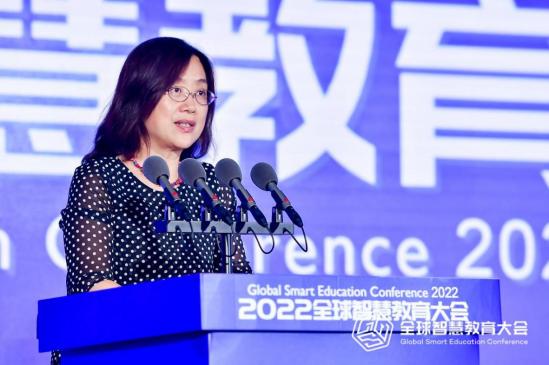
Zeng Xiaodong, Executive Director of UNESCO INRULED
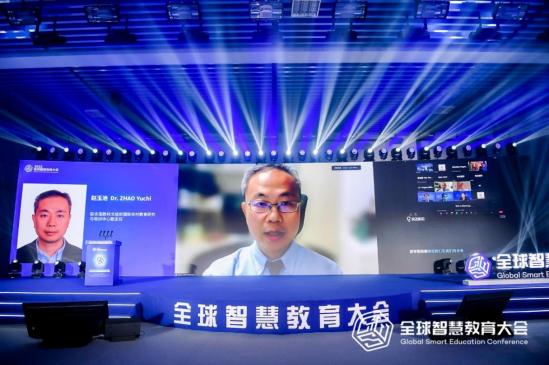
Zhao Yuchi, Deputy Director of UNESCO INRULED
The forum, held in a hybrid format with live broadcast on multiple platforms, and the representatives were from over 13 countries of 5 regions. They represented 7 international organizations, and more than 20 higher education institutes, universities, research institutions, governmental organizations and non-governmental organizations around the world.

